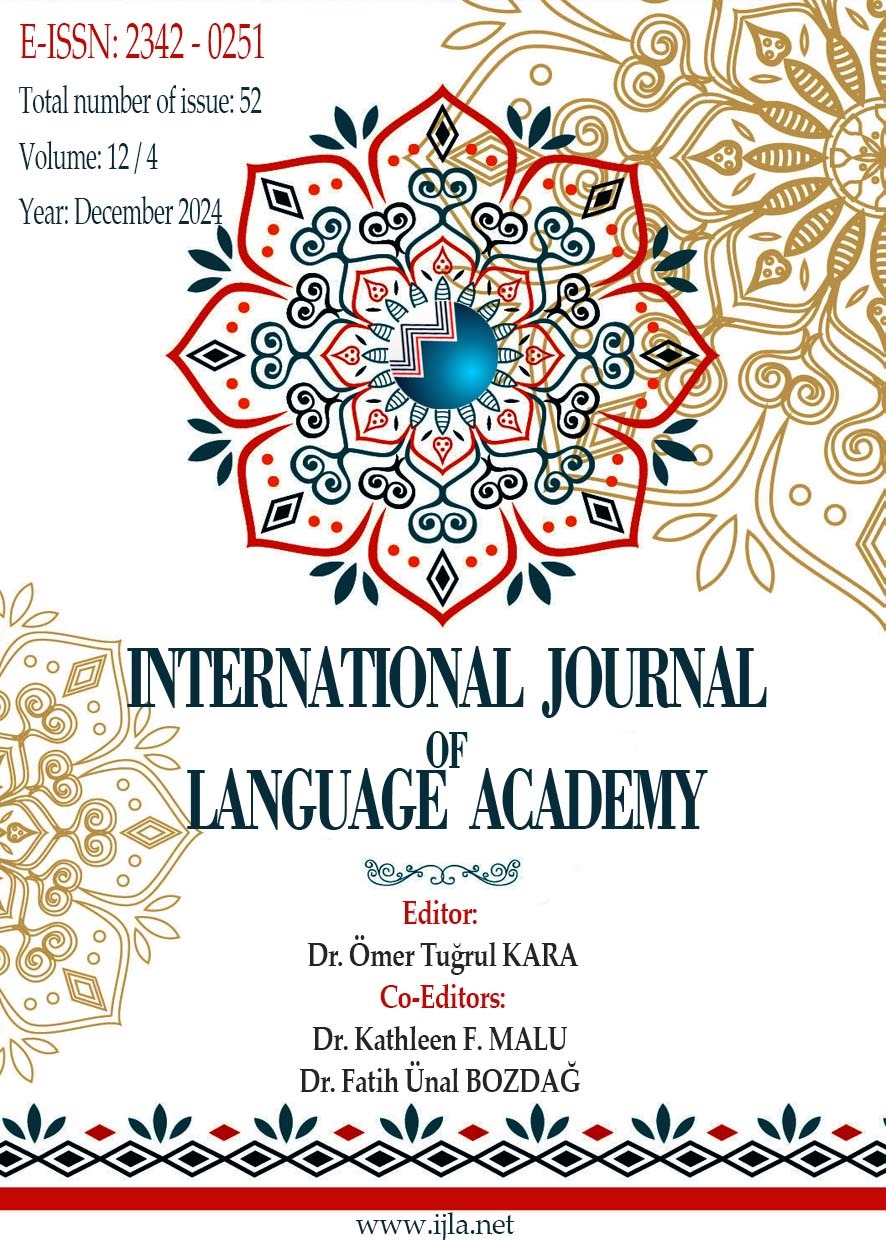Author :
Abstract
Keywords
Abstract
The use of smart technologies in foreign language education has shown the importance of the process of integrating technology into education and the necessity of handling smart technologies holistically in foreign language education throughout the entire education process, starting from the pre-school period. The aim of the research is to examine the postgraduate thesis studies in the field of smart technologies in foreign language education in the context of their scope, content, trends, objectives and results. Within the scope of the research, 142 postgraduate studies taken from the database of the National Thesis Center between the years 2012-2022 were examined. Content analysis technique was used in the analysis of the research documents, and the analysis data were analyzed with the MAXQDA program. Descriptive statistics were used in the presentation of the data obtained as a result of the analysis. According to the research findings, sub-technology trends in postgraduate thesis studies mainly focus on technology, web and digital tools (f=71). These studies are computer technologies (f=32), mobile applications (f=26), reality and artificial intelligence (f=8) and multimedia tools (f=4), respectively. It is seen that there is a tendency at the university level (f=97) in the studies the most, and the studies are conducted at the pre-school level (f=2) at the least. In terms of the purposes of the theses discussed in the field of smart technologies in foreign language education; it is stated that new techniques and approaches are applied more successfully than traditional methods (f=103), and the most tendency in the results achieved in the same way is that new approaches and techniques in foreign language education are more successful than traditional methods and that they should be integrated into education (f=88).
